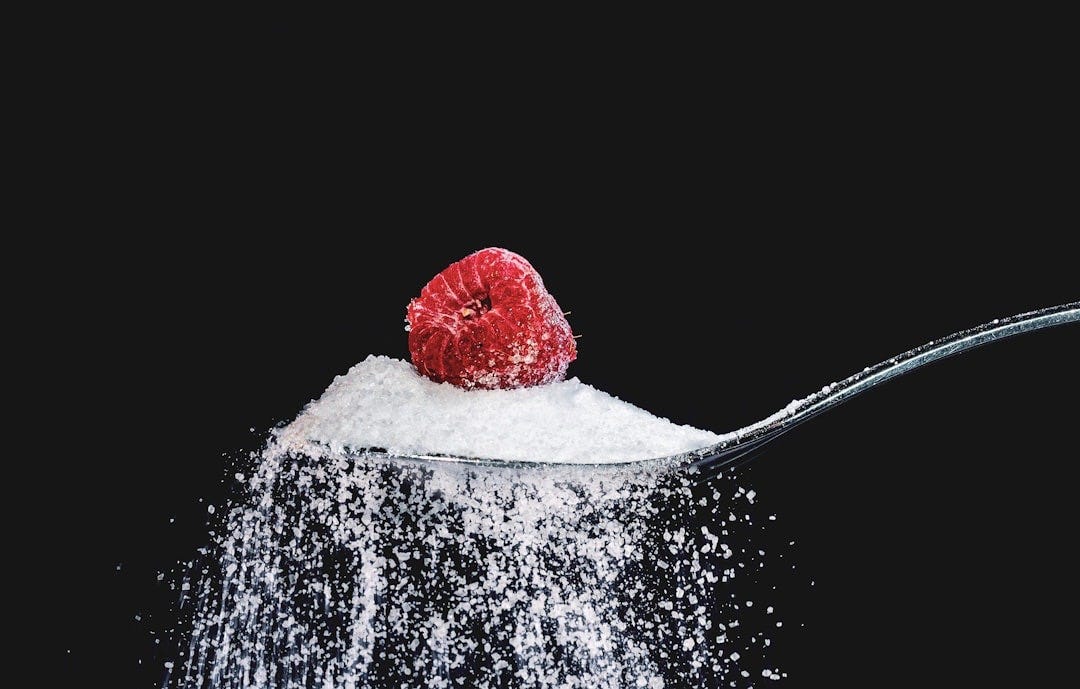Sugar Kills Vitamin C Absorption
Subconscious Fat on Vitamin C

Mr. Skeptical leans back in his chair, tossing an apple in the air.
“So, let me get this straight—since fruit has sugar, you’re saying fruit isn’t that healthy now?”
I sigh. “I didn’t say that. I’m saying you’re not absorbing as much vitamin C from fruit as you think because the sugar in fruit competes with it.”
He takes a dramatic bite of his apple. “Oh, here we go. Let me guess, another anti-carb rant?”
I smirk. “Nope. Just science.”
Subconscious Fat at 30,000 Feet
For decades, we’ve been told that fruit is the best source of vitamin C. Oranges, strawberries, kiwis—nature’s vitamin C powerhouses, right?
🚨 But here’s the problem: Glucose and vitamin C use the same transport pathways in the body. This means that the more sugar you consume, the less vitamin C you actually absorb.
“Hold on,” Mr. Skeptical interrupts. “Are you seriously telling me that an orange is bad for me?”
I shake my head. “Not bad. Just not as efficient as you think.”
🔬 Study Breakdown:
Both glucose and vitamin C are absorbed via SGLT1 and GLUT transporters in the intestines and cells.
High blood sugar reduces vitamin C uptake in white blood cells, weakening immune function.
A 1997 study in The American Journal of Clinical Nutrition found that a high-glucose meal significantly lowered vitamin C absorption compared to a low-glucose meal.
“Okay, but fruit is still packed with antioxidants,” he counters.
“Sure, but so are bell peppers and liver —without the sugar-blocking absorption.”
He raises an eyebrow. “So, are you saying sugar is stealing my vitamin C?”
I smile. “Bingo.”
Subconscious Fat at 10,000 Feet
A 2010 study in Diabetes Care found that people with high blood sugar had lower vitamin C levels and increased inflammation. This is a major issue for diabetics and anyone trying to optimize their health.
Mr. Skeptical rubs his chin. “Okay, so if I eat fruit with other carbs, my vitamin C absorption is even worse?”
“Exactly. Your best bet is to eat vitamin C-rich foods without sugar, or at least separate fruit from other carbs. Below is an image of how the sugar molecule and the Vitamin C molecule look alike.
Subconscious Fat at Eye-Level
Mr. Skeptical smirks. “You always talk about an Innate Intelligence that all humans have that is smart and knows how to run the body. Why would innate (he raises both hands air quoting the word) then take sugar over something healthy like Vitamin C?”
“Because for most of humanity, sugar was more critical. There’s a logical evolutionary explanation for this. We needed sugar’s energy to hunt down an animal when hunting. What’s better to starve today because I don’t have the energy to hunt? Or to eat today and die from a disease later on? Evolution is a cruel biological calculating mistress.”
Irritated by my answer, Mr. Skeptical adds, “What about scurvy? Don’t people who avoid fruit get that?”
“No. There is vitamin C in meat—just not as much as in fruit. The internal organs of animals have more vitamin C.”
Practical Suggestions and Conclusions
Mr. Skeptical looks at his half-eaten apple. “So let me get this straight—fruit has vitamin C, but the sugar in fruit blocks some of it?”
“Correct.”
“And if I eat it with other carbs, I absorb even less vitamin C?”
“Correct.”
He sighs. “I really hate this.”
I shrug. “I just give you the facts.”
He takes another bite. “Fine. But I’m still eating my fruit.”
“Good. Just don’t expect it to be your best source of vitamin C.”
Be aware.
Other links related to this post:
Evolution: It Seeps Into Everything
Wild New World
Fruit: It Uses You for Sex
PS Links on LinkedIn, Facebook, and Instagram. Full disclosure: Chat GPT was used to research and enhance this post.




Wow!